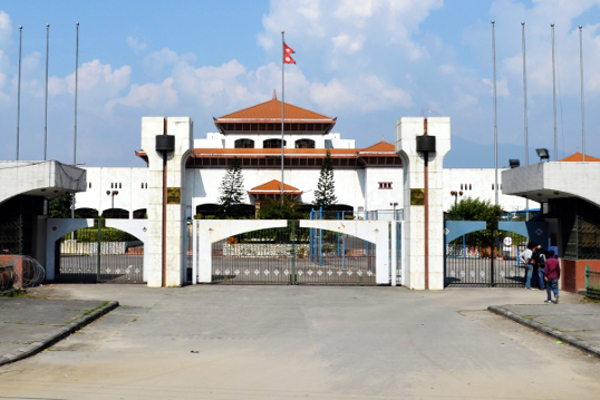New Delhi, Nov 07: Nepal has been called as the biggest hub of the Indian Mujahideen. The Indian Mujahideen which has links with Pakistan terror groups is using Nepal as a hub to carry out terror attacks against Indians, the US State Department said in its report.
The Indian Mujahideen is obtaining funds and support from Pakistan sources and has expanded its area of operations in Nepal the report titled Country Report on Terrorism as also said.
While Nepal has not witnessed any major incident of terror, there is considerable intelligence that suggests that the rise of Islamic terror in the country.
Groups such as the Tablighi Jamaat and Islami Sangh, Nepal operate in the country. The two outfits have been at conflict in a minor way over issues such as ideology and faith. Muslims make up for almost 5 per cent of Nepal’s population. They are the biggest single group in the five Tarai districts of Banke, Kapilvastu, Parsa, Bara and Rautahat.
The arrest of Indian Mujahideen operative Abdul Subhan last year and his subsequent investigation revealed how a well-oiled network in Nepal is giving protection to terrorists on the run. As mentioned earlier Nepal is a safe haven for terrorists. They use it as a transit point between India and Pakistan. Subhan during his questioning speaks about a person called Nizam Khan a member of the Islami Sangh who provides logistic supports to terrorists on the run.
While India acknowledges that Nepal is a safe haven for terrorists, it also says that there has been a slow rise in Islamic fanaticism in the country. Nepal has not been very proactive in dealing with these issues. The BIPA corridor-Bangladesh, India, Pakistan and Afghanistan has been a hub of terror activity. The operatives working on this corridor carry out their activities before finding a safe hub in Nepal.
What Indian agencies worry is that the rise of Islamic terror within Nepal could spill out into India. For now, groups such as the Islami Sangh have been providing logistic support to the Indian terrorists. Another incident reported in recent times showed how an operative from Nepal was roped in by a Pakistani to blow up railways tracks in India.
The Intelligence Bureau says that Nepal no longer is a stop-over. It is gradually becoming a control centre. What ails the war on terror is the open border with India. The weak controls on the border and lack of checks has only added to the problem. The Islamic groups in Nepal oversee the movement of terrorists and have deployed their touts to ferry terrorists.
A recent report by the US State Department had raised concerns about the weak border security and how it has become a free transit point for international terrorists as well. Nepal however did not consider the report too seriously as a result of which it was exploited by terrorists.
Nepal also had a brush with the Islamic State recently. In August 2017, four citizens of Nepal were arrested for alleged links with international terrorist groups.
The four arrested were Shamshul Hoda, Mojahir Ansari, Asish Singh and Umesh Kumar Kurmi, all hailing from Bara district in the south of Nepal.
They were migrant workers who had gone to Dubai in search of work. Out there they came in contact with a Pakistan national who lured them into the ISIS.
Ironically at the time of incident, the four were detained on charges of murder as there was no anti-terrorism law.
Investigations had revealed that these persons had killed two Indians. The murder took place after the Indians changed their minds and said that they would not work for the ISIS. The two Indians to be killed were Dipak Ram and Arum Ram whose bodies were found in the Karaiya forest.
Investigations also revealed that the four were operating as a part of the network set up by the ISIS which spread across, Malaysia, Dubai, India, Pakistan and Nepal. It was also found that this was the same group that was part of the module which planted the bomb on the railway track near Kanpur in Uttar Pradesh.
Source: ONE INDIA
Image Courtesy: Wikimedia
You may also like
-
Beware! Chinese Hackers are Using VLC Media Player to Spy on You
-
Israel Participates in US Mideast Naval Exercise wih Saudi Arabia and Oman – IMX 22
-
Pakistani Establishment Controlling ‘Family Business’ of Selling Kashmir Narrative, Uses Issue as Survival Strategy: Report
-
After Suspending Twitter ‘Indefinitely’, Nigerian Govt Joins Made-In-India Microblogging Platform ‘Koo’
-
Pam Gosal, First Indian-Origin Woman to be Scottish Lawmaker
